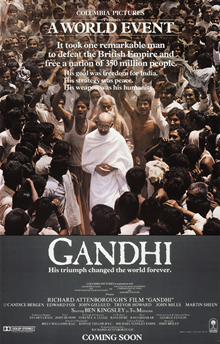Related Research Articles

Dwight David Eisenhower, nicknamed Ike, was an American military officer and statesman who served as the 34th president of the United States from 1953 to 1961. During World War II, he was Supreme Commander of the Allied Expeditionary Force in Europe and achieved the five-star rank as General of the Army. Eisenhower planned and supervised two of the most consequential military campaigns of World War II: Operation Torch in the North Africa campaign in 1942–1943 and the invasion of Normandy in 1944.

Martin Van Buren was the eighth president of the United States, serving from 1837 to 1841. A primary founder of the Democratic Party, he served as New York's attorney general and U.S. senator, then briefly as the ninth governor of New York before joining Andrew Jackson's administration as the tenth United States secretary of state, minister to Great Britain, and ultimately the eighth vice president from 1833 to 1837, after being elected on Jackson's ticket in 1832. Van Buren won the presidency in 1836 against divided Whig opponents. Van Buren lost re-election in 1840, and failed to win the Democratic nomination in 1844. Later in his life, Van Buren emerged as an elder statesman and an anti-slavery leader who led the Free Soil Party ticket in the 1848 presidential election.
Pentecostalism or classical Pentecostalism is a Protestant Charismatic Christian movement that emphasizes direct personal experience of God through baptism with the Holy Spirit. The term Pentecostal is derived from Pentecost, an event that commemorates the descent of the Holy Spirit upon the Apostles and other followers of Jesus Christ while they were in Jerusalem celebrating the Feast of Weeks, as described in the Acts of the Apostles.

1983 (MCMLXXXIII) was a common year starting on Saturday of the Gregorian calendar, the 1983rd year of the Common Era (CE) and Anno Domini (AD) designations, the 983rd year of the 2nd millennium, the 83rd year of the 20th century, and the 4th year of the 1980s decade.

The Who are an English rock band formed in London in 1964. Their classic lineup (1964–1978) consisted of lead vocalist Roger Daltrey, guitarist Pete Townshend, bassist John Entwistle and drummer Keith Moon. They are considered one of the most influential rock bands of the 20th century. Their contributions to rock music include the development of the Marshall stack, large public address systems, the use of synthesizers, Entwistle's and Moon's influential playing styles, Townshend's feedback and power chord guitar technique, and the development of the rock opera. They are cited as an influence by many hard rock, punk, power pop and mod bands. The Who were inducted into the Rock and Roll Hall of Fame in 1990.

The 1984 United States presidential election was the 50th quadrennial presidential election, held on Tuesday, November 6, 1984. Incumbent Republican President Ronald Reagan and his running mate, incumbent Vice President George H. W. Bush, were re-elected to a second term in a landslide. They defeated the Democratic ticket of former Vice President Walter Mondale and Congresswoman Geraldine Ferraro.

Rastafari, sometimes called Rastafarianism, is an Abrahamic religion that developed in Jamaica during the 1930s. It is classified as both a new religious movement and a social movement by scholars of religion. There is no central authority in control of the movement and much diversity exists among practitioners, who are known as Rastafari, Rastafarians, or Rastas.

Prince Albert of Saxe-Coburg and Gotha was the husband of Queen Victoria. As such, he was consort of the British monarch from their marriage on 10 February 1840 until his death in 1861. Victoria granted him the title Prince Consort in 1857.

The 1983 United Kingdom general election was held on Thursday 9 June 1983. It gave the Conservative Party under the leadership of Margaret Thatcher the most decisive election victory since that of the Labour Party in 1945, with a majority of 144 seats and the first of two consecutive landslide victories.

Dame Olivia Mary de Havilland was a British and American actress. The major works of her cinematic career spanned from 1935 to 1988. She appeared in 49 feature films and was one of the leading actresses of her time. At the time of her death in 2020 at age 104, she was the oldest living and earliest surviving Academy Award winner and was widely considered as being the last surviving major star from the Golden Age of Hollywood cinema. Her younger sister, with whom she had a noted rivalry well documented in the media, was Oscar-winning actress Joan Fontaine.

The United States and a coalition of six Caribbean countries invaded the small island nation of Grenada, 100 miles (160 km) north of Venezuela, at dawn on 25 October 1983. Codenamed Operation Urgent Fury by the U.S. military, it resulted in military occupation within a few days. It was triggered by strife within the People's Revolutionary Government, which led to the house arrest and execution of the previous leader and second Prime Minister of Grenada, Maurice Bishop, and to the establishment of the Revolutionary Military Council, with Hudson Austin as chairman. Following the invasion there was an interim government appointed, and then general elections held in December 1984.

"Every Breath You Take" is a song by the English rock band the Police from their album Synchronicity (1983). Written by Sting, the single was the biggest US and Canadian hit of 1983, topping the Billboard Hot 100 singles chart for eight weeks, and the Canadian RPM chart for four weeks. Their fifth UK No. 1, it topped the UK Singles Chart for four weeks. The song also reached the top 10 in numerous other countries.

Scarface is a 1983 American crime drama film directed by Brian De Palma, written by Oliver Stone, and starring Al Pacino. It is a remake of the 1932 film of the same name, in turn based on the novel of the same name first published in 1930 by Armitage Trail. It tells the story of Cuban refugee Tony Montana (Pacino), who arrives penniless in Miami during the Mariel boatlift and becomes a powerful drug lord. The film co-stars Steven Bauer, Michelle Pfeiffer, Mary Elizabeth Mastrantonio, Robert Loggia, Míriam Colón and F. Murray Abraham.

Gandhi is a 1982 epic biographical film based on the life of Mahatma Gandhi, a major leader in the Indian independence movement against the British Empire during the 20th century. A co-production between India and the United Kingdom, the film was directed and produced by Richard Attenborough from a screenplay written by John Briley. It stars Ben Kingsley in the title role. The biographical film covers Gandhi's life from a defining moment in 1893, as he is thrown off a South African train for being in a whites-only compartment and concludes with his assassination and funeral in 1948. Although a practising Hindu, Gandhi's embracing of other faiths, particularly Christianity and Islam, is also depicted.

On October 23, 1983, two truck bombs were detonated at buildings in Beirut, Lebanon, housing American and French service members of the Multinational Force in Lebanon (MNF), a military peacekeeping operation during the Lebanese Civil War. The attack killed 307 people: 241 U.S. and 58 French military personnel, six civilians, and two attackers.

David Walter Foster is a Canadian record producer, film composer, and music executive. He has won 16 Grammy Awards from 47 nominations. Foster's career began as a keyboardist for the pop group Skylark in the early 1970s before focusing largely on composing and production. Often in tandem with songwriter Diane Warren, Foster has contributed to material for prominent music industry artists in various genres since then, and is credited with production on over 40 pop hits on the Billboard Hot 100. He has also chaired Verve Records from 2012 to 2016.

Central European Summer Time, sometimes referred to as Central European Daylight Time (CEDT), is the standard clock time observed during the period of summer daylight-saving in those European countries which observe Central European Time during the other part of the year. It corresponds to UTC+02:00, which makes it the same as Eastern European Time, Central Africa Time, South African Standard Time, Egypt Standard Time and Kaliningrad Time in Russia.

Byford Dolphin was a semi-submersible, column-stabilised drilling rig operated by Dolphin Drilling, a Fred Olsen Energy subsidiary. It drilled seasonally for various companies in the British, Danish, and Norwegian sectors of the North Sea. It was registered in Hamilton, Bermuda. In 2019, Dolphin scrapped the rig.

The Parthian Empire, also known as the Arsacid Empire, was a major Iranian political and cultural power centered in ancient Iran from 247 BC to 224 AD. Its latter name comes from its founder, Arsaces I, who led the Parni tribe in conquering the region of Parthia in Iran's northeast, then a satrapy (province) under Andragoras, who was rebelling against the Seleucid Empire. Mithridates I greatly expanded the empire by seizing Media and Mesopotamia from the Seleucids. At its height, the Parthian Empire stretched from the northern reaches of the Euphrates, in what is now central-eastern Turkey, to present-day Afghanistan and western Pakistan. The empire, located on the Silk Road trade route between the Roman Empire in the Mediterranean Basin and the Han dynasty of China, became a center of trade and commerce.